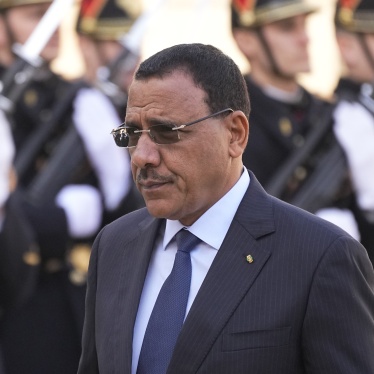(New York) – The Afghan government should end its sudden surge of executions and institute a moratorium on further executions, Human Rights Watch said today. On November 20, 2012, the Afghan government executed eight people, ending a four-year virtual moratorium on the use of the death penalty, during which only two people were reportedly executed.
The weakness of the Afghan legal system and the routine failure of courts to meet international fair trial standards make Afghanistan’s use of the death penalty especially troubling, Human Rights Watch said. Countries and donors supporting the Afghan government should make clear their opposition to the renewed use the death penalty.
“The Afghan government’s near total moratorium on the death penalty in recent years was a major departure from Taliban rule,” said Brad Adams, Asia director at Human Rights Watch. “The eight hangings in a single day are a terrible step backwards for Afghanistan. President Hamid Karzai should stop future executions and commit to a formal moratorium.”
The Afghan government, which distributed photos of the executed men to journalists, said the men were hanged as punishment for “crimes and cruelty against children, women and people of Afghanistan.” Those crimes included murder, rape, sexual assault, kidnapping, and robbery.
Under Afghan law, the president must sign a death warrant in order for an execution to go forward after a court hands down a death sentence.
Afghan law allows for the death penalty and death sentences are handed down by courts with some frequency. However, executions have been infrequent since the fall of the Taliban regime in 2001. A single execution was carried out in 2004, followed by a three-year unofficial moratorium that ended in 2007 with the execution by firing squad of 15 people at Pul-i-Charkhi prison in Kabul. At that time, the government announced that it intended to continue executing those on death row, and further executions were held in 2008, sparking condemnation from the United Nations and the European Union. Since then, the government has not carried out the death penalty, with the exception of the execution in June 2011 of two men convicted of participating in a February 2011 attack on a bank in Jalalabad in eastern Afghanistan that resulted in 38 deaths.
Afghanistan’s justice system remains weak, compromised, and fails to meet with international fair trial standards in spite of more than 10 years of donor assistance. It relies heavily on confessions, including some obtained through torture. Use of physical evidence is rudimentary. The independence and impartiality of judges is often undermined, especially in high-profile cases. Effective defense representation is often absent. Studies by the UN and others have shown prosecutors and judges to be among the most corrupt officials in Afghanistan. The Afghan justice system is also opaque, with information about court dates not easily available. Prisoners on death row include women convicted of murder for killing their abusive husbands, in a society in which women have little chance for escape from domestic violence.
Human Rights Watch opposes the death penalty in all circumstances as an inherently irreversible, inhumane punishment. A majority of countries in the world have abolished the practice. On December 18, 2007, the United Nations General Assembly passed a resolution by a wide margin calling for a worldwide moratorium on executions.
“The death penalty is an act of cruelty that should never be used,” Adams said. “Its use in Afghanistan, where a fair trial is typically out of the question, is even more horrific.”








